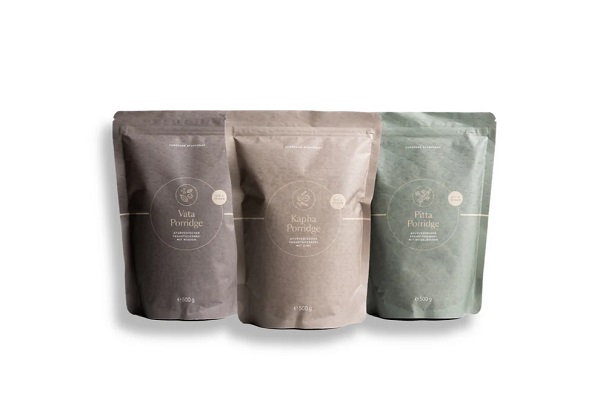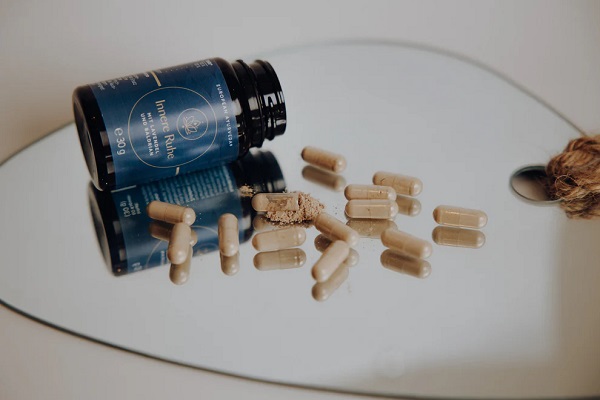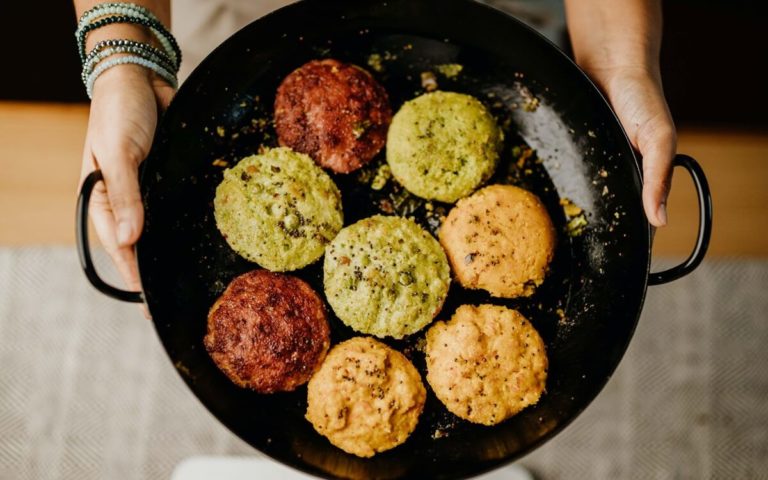Epigenetics investigates which external factors can influence our genes. After all, your genes do not determine your entire life. You can promote a healthy life into old age through lifestyle, diet, thinking and emotions - and Ayurvedic health teachings also make use of this. You can find out how this works and what you can do here.
What is epigenetics? Definition and the (dis)power of genes
Just a few decades ago, it was believed that our genes determine our future. But modern epigenetics has revolutionized this dogma. It shows that Genes are like a sheet of music - but we decide which melody is played.
Our lifestyle, our diet, our thinking and even our emotions influence which genes are activated or silenced. These molecular switch mechanisms help determine whether we age healthily or become susceptible to inflammation, fatigue and chronic diseases.
European Ayurveda®: lifestyle medicine with a deep epigenetic effect
What the science of epigenetics is deciphering today is presented in the European Ayurveda® has been practiced for thousands of years. The focus is not on the symptom, but on the person as a whole - physically, emotionally and mentally.


At the Ayurveda Resort Sonnhof, our experts Dr. Alaettin Sinop (specialist in general medicine and lifestyle medicine) and Ayurveda doctors Sharma Gaurav and Deepa Naik combine traditional knowledge from India with Western medicine and modern cell research.
"Our genes can be influenced - and this is exactly where European Ayurveda® comes in: With nutrition, rhythm and inner attitude, we shape health right down to the cell nucleus," says Dr. Sinop.
The aim is to positively influence epigenetic processes through type-appropriate Ayurvedic nutrition, inner cleansing, mental resilience and rhythmic daily structure - all in the spirit of Longevity Medicine.
These 4 pillars show how Ayurveda is epigenetically effective
As a holistic health teaching, Ayurveda focuses on different areas in order to become epigenetically effective. Through mind detox, resilience, a type-appropriate lifestyle and effective stress management, Ayurvedic teachings can have a positive influence on your epigenetics.
1. mind detox: mental hygiene for your cellular health
Negative beliefs, constant brooding and mental overstimulation leave their mark - not only on the psyche, but also on epigenetic regulation. In European Ayurveda®, mind detox means emotional detoxification and mental reset.


Recommended by Ayurveda specialist Deepa Sharma:
- Mindfulness meditation and mantra recitation
- Journaling for mental clarity
- Herbs like Brahmi to calm the mind
2. strengthening resilience: How inner stability influences genes
Resilience is the ability to adapt to difficult situations, problems or changes and the ability to survive them without lasting consequences. This inner stability also influences our epigenetics by activating certain genes and deactivating others.
Sharma Gaurav, Ayurveda doctor at Sonnhof, explains:
"Inner stability has an anti-inflammatory effect - not only emotionally, but also genetically measurable."
European Ayurveda® strengthens your resilience through:
- Regular daily routines (Dinacharya)
- Sattvic diet (light, fresh, warm)
- Adaptogenic Ayurvedic herbs such as ashwagandha and tulsi
3. type-appropriate living: Your dosha knows the best way
A life that is individually adapted to your character and conditions is the best way to live a long and healthy life. In epigenetics we speak of individualized gene regulation - in Ayurveda this is called Prakriti(constitutional type: Vata, Pitta, Kapha). Our doctors at Sonnhof analyze your Dosha picture precisely in order to derive specific epigenetically effective recommendations.
In practical terms, this means
- Vata types need grounding and warmth
- Pitta types benefit from cooling and emotional expansiveness
- Kapha types need movement and lightness
This type-appropriate lifestyle has an effect right down to the DNA level: it regulates stress axes, hormones and cell communication.
4. stress management & telomere care: longevity begins now
Chronic stress is an epigenetic killer - it shortens the telomeres, the protective caps of our DNA, and accelerates cell decay. Ayurveda counters this process with deep relaxation, breathing techniques and a sense of purpose.


Dr. Sinop emphasizes:
"Breathing techniques such as pranayama or yoga nidra not only strengthen the nervous system, but also activate cell-protecting processes."
Recommended Ayurvedic measures to reduce stress are:
- Pranayama and yoga nidra to lower cortisol
- A positive mindset, positive emotions and gratitude promote telomere activity
- Spiritual rituals to build resilience
Exercise: Letting go emotionally with the 3-step ritual "Feel - Release - Transform"
This simple meditation helps you to let go of negative emotions and regain mental balance. You have a useful tool to effectively reduce stress and are ready for new, positive energy. This exercise was developed by Deepa Sharma in the Mind Detox practice:
Feel - feel what is there
Close your eyes. Notice where you feel emotional tension - without judging.
Release - Breathe and release
Take five deep breaths in through the nose and out through the mouth. Visualize letting go. Gently tap the thymus gland.
Transform - Transform into lightness
Place your hand on your heart. Repeat:
"I allow myself to let go. I am ready for new energy."
Two Ayurvedic daily routines for more energy and cell health
Ayurvedic daily routines are helpful to strengthen cellular health, reduce stress and have more energy. They support healthy rituals and help you to lead a lifestyle that is adapted to your constitutional type and supports your epigenetics.
Tip: Start slowly at the beginning and practise one routine at a time. You don't have to change your entire life immediately - it's better to go step by step towards a healthy, epigenetic daily routine.
1st morning ritual: activate energy and build up ojas
With an Ayurvedic morning routine you can start the day well and activate your energy and build up Ojas in the morning.


We recommend the following routine:
- Get up at 6:00 am
- Oil pulling with oral care oil and tongue scraping
- Warm water with lemon and turmeric
- Nadi Shodhana Pranayama
- Abhyanga with Vata oil
- Type-appropriate breakfast (e.g. porridge with ghee and cinnamon)


Discover the delicious porridge bundle in the European Ayurveda® online store now
Experience the power of Ayurveda in the morning - with our specially tailored breakfast bundle consisting of Kapha, Pitta and Vata porridges.
2. evening routine: cell regeneration and sleep hygiene
A consistent routine before going to bed also helps you to leave the day behind and calm down. It is important that you don't go to bed too late and reduce your screen time in the evening.


The following rituals can help you with this:
- Herbal tea with brahmi, nutmeg and lavender
- Foot massage with lavender oil or ghee
- 20 minutes Yoga Nidra
- Digital detox from 9 pm
- Sleep in until 10 pm


Discover the Inner Peace capsules in the European Ayurveda® online store now
Innere Ruhe capsules are a natural dietary supplement with valuable plant extracts of lavender, valerian, lemon balm, hops and passion flower herb. They have a calming and balancing effect - for more balance.
Conclusion: Your lifestyle writes your cell history
Genes are just the beginning - you decide what becomes of them. With the medically supported epigenetics method from European Ayurveda® and the knowledge of Dr. Sinop, Sharma Gaurav and Deepa Sharma, you get a well-founded system for self-healing, promoting resilience and longevity.
European Ayurveda® - noticeably different.
Find out more in the European Ayurveda® Shop.


Stress management with Ayurveda: definition and methods
Stress: For most people, this unpleasant feeling is a daily companion at work, in everyday family life or due to social obligations. But what actually is stress and what can you do about it?






